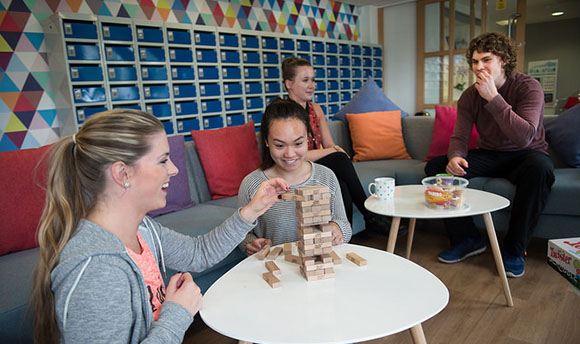What is Inclusive Leadership and how do we apply it at Queen Margaret University?
An interview with Professor Paul Miller - Diversity, Equality, and Inclusion (DEI) and Anti-Racism adviser to QMU’s Principal, Sir Paul Grice.
Professor Paul Miller is the Equality, Diversity and Inclusion & Anti Racism Adviser to QMU's Principal, Sir Paul Grice. In his role at the university, Paul is providing advice and guidance on the further advancement of equality, diversity and inclusion and fostering an anti-racism culture of understanding.
What does inclusive leadership mean to you?
I think inclusive leadership is about centering the experience of stakeholders. In the University, we would say that is our staff and students. All staff and all students.
And what do I mean by “centring the experience of staff and students”? I would say it involves three things:
One, it’s about valuing the voices, experience and expertise of staff and students, and using these in decision-making.
Two, it’s about insisting upon and ensuring fair allocation of resources and opportunities for all, and not just some. So, a principle of fairness. Fair allocation.
The third thing is ensuring that systems are in place to capture feedback from stakeholders. That’s about accountability. How do we make sure that the system is delivering?
So, to summarise, I see inclusive leadership as an approach to leadership which places the value of individual stakeholders at its very heart.
You have worked with over 16 universities over the past few years in your capacity as DEI adviser. How have you demonstrated inclusive leadership in this role and in your current position at QMU?
At Queen Margaret, I’m leading a full DEI culture review, and in designing the project I was very keen to make sure there were staff and student representatives from right across the University.
We have, for example, Student Union representation on the project steering group. We have the staff networks, we have different directorates, there’s Registry, there’s the communications team, there’s the HR team. We have the Principal’s office represented.
This is not a DEI review being done in secret or being done top down. It is making sure that everyone has an opportunity, through these various networks or these mechanisms, to have a voice at the table. I think that’s really, important.
Another example... when I became Head of School (Education) at the University of Greenwich I went and met every single staff member in the school. I found the time to meet with all of them.
In each meeting, I wanted to find out three things from them. Firstly, their experiences at the University, and in the school itself. Secondly, their ambitions for the school. Thirdly, any ideas they had which they believed could help me because I couldn’t do this leadership alone.
That was my way of inviting them into the discussion around leadership. I was the Head of School, but I needed them, the staff, in order to be an effective leader.
I heard lots of concerns from them, and when we had School meetings, the first slide would always be: “You said” listing the concerns on one half of the slide. The other half was “We listened” with the actions being taken to address the concerns.
This was to show the staff we were listening. Not only listening but responding. But also, we took away lots of ideas from this. Ideas around how to work better with our students, ideas around course changes. Lots of ideas around marketing.
Again, this is about valuing people. Valuing their experience, their expertise and their voice. Making sure they know that you value them.
Do you feel leadership like this requires bravery?
Yes, it absolutely requires bravery because it requires leaders to show vulnerability.
What that looks like in practice is leaders listening to staff and listening to students. That listening is key.
Listen without judgement and without interruption. Listen with discernment. Often people struggle to articulate what it is they are trying to say, for various reasons.
They might babble. And that’s ok. You must listen to them without judgement but with discernment. You have to act on these babblings, act on what they are trying to say. Let them feel heard, let them feel seen. Then develop transparent processes to show the steps you are taking when you act, show the allocation of resources and the way you administer justice.
Finally, demand accountability from all. If inclusivity is going to work it needs to come from all, promoting religious freedom, for example. The life and dignity of members of the LGBTQ+ community shouldn’t be compromised, for example. It's about making sure that in this discussion around inclusivity, all of us can thrive.
***
This blog is extracted from this full QMU podcast episode.
Paul is a former Head of the School of Education at the University of Greenwich and is currently a Professor of Educational Leadership & Social Justice and Director of the Institute for Educational & Social Equity.
He is the first (and still the only) Black professor of educational leadership in the UK and has researched, written and published significantly on the issues of racism and leadership and how the curriculum can be used to tackle gender-based violence.







